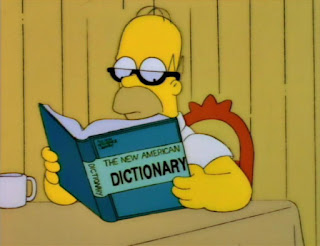"Hey, I don't remember saying that..."
CONSIDER YOUR GENRE (AND TONE)
A farce needs an impeccably staccato symphony of energetic words, a western is more visually oriented than dialogue-heavy, and a musical may require characters to act in a heightened tone to fit surrounding songs. It's about execution, after all, and few other things in film are immune to the effects of the wrong tone.
"I'm not an American, I'm a nymphomaniac."
This line fits the tone of the film, folks. Trust me.
DIFFER YOUR "VOICES"
Indeed, dialogue can make a character "leap off the page" and gives the reader an idea of what they're like without the help of visuals.
Keeping Up Appearances forms its premise around basically one joke:
how much of a snobbish, "prim and proper" force of nature one woman can be.
THE "HEMS" AND "HAWS"
In real life, people say "um", "er", and countless other sounds and punctuation that would be anathema to a traditional screenwriter. But I say, it's a subtle and sneaky way to humanize your characters. Keep in mind the need for rhythm and flow in your dialogue, of course.
THE "REPEATS" AND "CHEKHOV'S QUOTES"
Characters oftentimes repeat important words, information, quotations, etc., whether from an in-universe source or from other characters. Of course, have fun with this. Does a character misquote another? Are they mocking the original line? Or repeating a word of advice? Even intentionally cheesy can work if you aim for earnestness, sweetness, and heartwarming.
Or alternatively, smarmy and sociopathic.
READ, READ, READ!






No comments:
Post a Comment